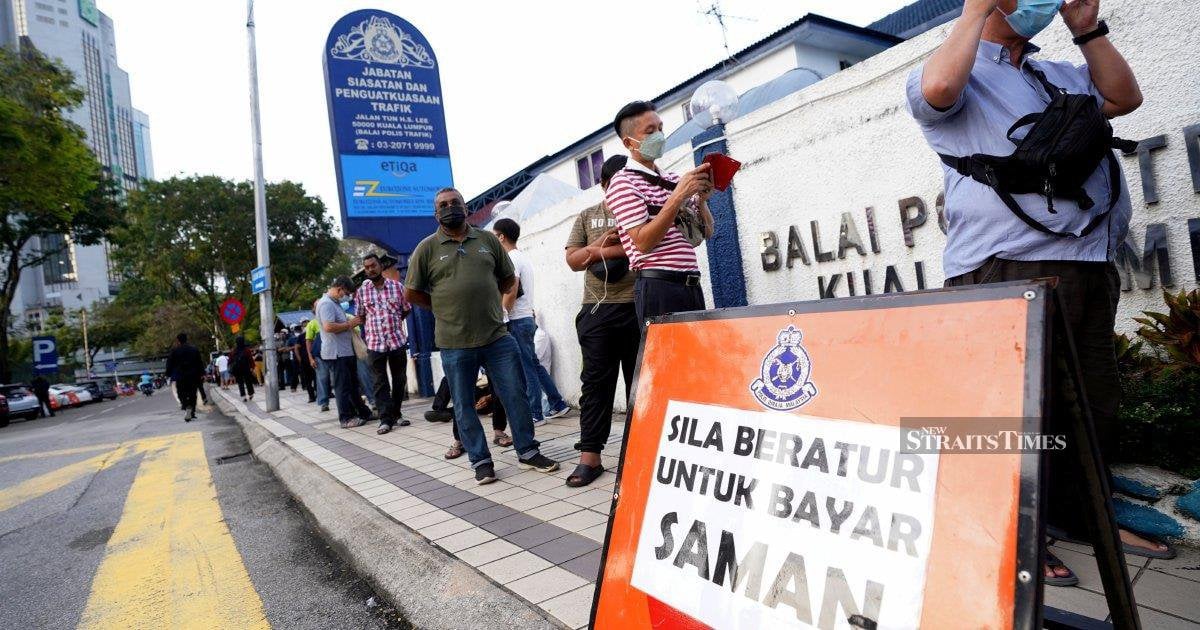MALAYSIAN motorists are so resentful of settling their traffic summonses, whether they come from the traffic police or the Road Transport Department, that they have mastered the system.
Instead of settling fines promptly like good citizens, they wait for the seasonal 50 per cent discounts by the authorities on all summonses. Instead of paying the full RM300 fine, they save RM150 for each summons, a very good bargain.
If the traffic police or the RTD was a shopping outlet, this would be a “big sale”. Over the years, the traffic police and the RTD have reduced themselves to being “bargain” outlets, enticing errant motorists with offers they cannot refuse.
Well, the offers are closing on Dec 30, because after that, there will be no more amnesty. The full weight of the law and maximum fines will be imposed with no exceptions.
Transport Minister Anthony Loke even coined the maxim: “the less you delay, the less you pay” principle, to be fully enforced when traffic compound rates are streamlined by the two enforcement agencies. However, there is still that “discount” element: offenders who settle summonses early get to pay lower compounds.
The three most common offences involve speeding: 1.4 million summonses were settled and RM425 million were collected up to Oct 21. We have to commend the agencies for their creative marketing in pulling in this impressive amount in fines, although in reality, they are collecting 50 per cent less.
Why are motorists so bull-headed in settling traffic summonses? Blame it on cultural perceptions. Motorists feel traffic laws like speeding and illegal parking are enforced unevenly. They believe some offenders get away due to “VIP connections”.
The biggest perception is that enforcement is selective or timed to generate revenue, not maintain safety on the roads. Controversial traffic enforcement systems are awarded and profits shared, making motorists perceive that these are “money traps”.
Do the fines collected go towards road safety or infrastructure improvements? Motorists don’t think so.
Enforcement has historically been weak and inconsistent, meaning that motorists can ignore summonses for years without consequences. That’s why motorists ignore illegal parking tickets from local councils and police.
It’s because of poor to little enforcement. But motorists respect tickets issued personally by traffic police or RTD because non-payment leads to arrest warrants and suspension of road tax and licence renewals. In the end, motorists simply wait for the inevitable “sale” to clear their traffic summonses, setting the meter back to zero before resuming violations.
However, with the Dec 30 deadline said to be definitive, the agencies must not backtrack. The effects on society familiar with the “discount culture” means flouting traffic laws will be the norm.
© New Straits Times Press (M) Bhd






![[UPDATED] Ewon Benedick resigns from Cabinet](https://prwire.my/wp-content/uploads/2025/11/UPDATED-Ewon-Benedick-resigns-from-Cabinet-300x158.jpg)